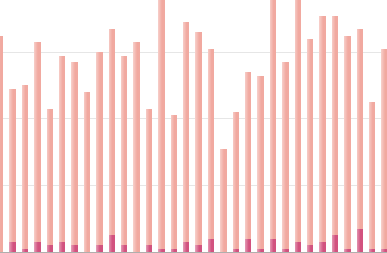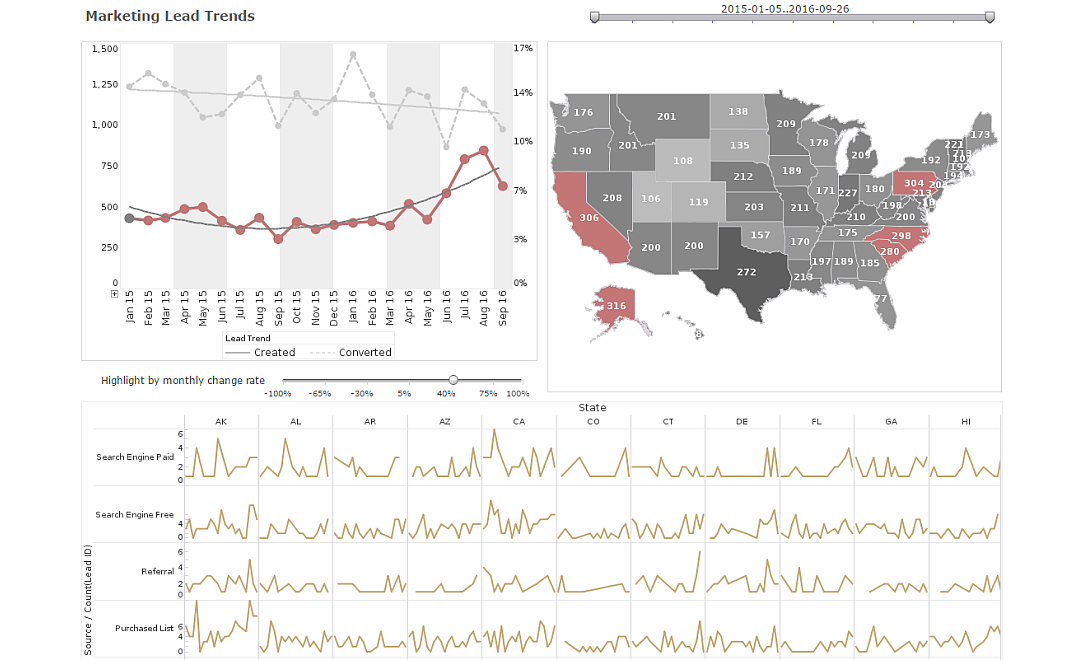InetSoft Webinar: How Important Is It to Your Organization to Have Analytics?
This is the transcript of a Webinar hosted by InetSoft in May 2018 on the topic of "Business Analytics Adoption." The speaker is Mark Flaherty, CMO at InetSoft.
How important is it to your organization to have each of the following analytics and metrics related analyst capabilities. The choices were search for existing data, analytics and metrics. One of the reasons your projects might fail is if the data is not getting prepped and delivered quickly or properly. Two-thirds of the organizations surveyed spend more time prepping the data than actually analyzing it. If your customers have not tackled the data preparation process, it's going to reflect poorly on your BI solution because people are going to just say, I don’t have the information I need, because they are spending too much time in the data preparation process.
Does that also include the activities of exporting data from databases and bringing into the spreadsheet because that’s where the person is going to analyze it? Waiting for data is one of them, believe it or not. Preparing the data for analysis, reviewing it for consistency and then the others are what they are actually doing once they are analyzing. But add up those pieces, waiting for data, preparing it, reviewing it for quality and consistency, that’s 69% of the organizations do most of their time.

Is it the case that ETL processes take too long trying to get raw data to the databases? Or is it more the case that the data is somewhere, but they don’t have access to it?
The case where the ETL process takes too long, I would include in that preparing data for analysis. That includes actually extracting the data and moving it to wherever it is going to be analyzed. Yes, those ETL jobs can take too long. That’s one of the places where they end up spending more time. One of the reasons your BI projects might fail is if the data is not getting prepped and delivered quickly or properly. Two-thirds of the organizations surveyed spend more time prepping the data than actually analyzing it. So again, maybe this is more of a field service piece of information and, to some extent, a piece of sales information. If your organization has not tackled the data preparation process, it's going to reflect poorly on you as the BI project leader because people are going to just say don’t have the information I need.
And the other point I would make is that that’s where a lot of the issues of timeliness come in. Can you make the data available instantly? Can your dashboard display information as soon as it’s available. But if it’s not in that database fast enough, people are still going to think that the system is too slow.
Your BI solution should support analytics databases as a data source, and what we mean there are things like the Netezza, things like Oracle, Exadata, things like Greenplum, Vertica, and Teradata. Those are analytics databases. Now, where we see all these problems about spreadsheets, you see how extensively spreadsheet business intelligence and analytics is in your organization. 88% of people use spreadsheets regularly or universally. So clearly, you need to integrate spreadsheets, but you want to try to get people using spreadsheet less.


To what extent, do you believe your company is using analytics and key performance indicators to improve the business performance? So 42% of enterprises believe that they can improve performance significantly and 45% believe they can’t.
And generally, organizations are not satisfied with the way they are doing performance management currently. Now, we had more respondents indicate that they are not satisfied than are satisfied, and the reasons they were dissatisfied are listed here. Almost half the organizations take six days or more to deliver data after the close of a reporting period, whatever that reporting period might be. People expressed a high degree of dissatisfaction with data being inaccurate. Especially if the analysis is done in spreadsheet, there is always the likelihood or possibility of human errors introduced in spreadsheets.
